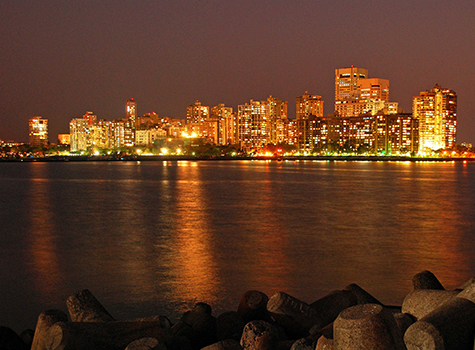I’ve experienced this feeling numerous times: my grandmother’s expectation, my mother’s excitement, and the subtle smile that arises in an aunt, uncle, or family friend. These moments all occurred when I told these individuals that “what I wanted to do” was to go to medical school and become a doctor. In my experience, the Indian community’s obsession with their children becoming doctors is deeply pervasive.
I have always been fascinated, albeit a bit annoyed, by this phenomenon and I hope to explain my hypothesis for why this may be the case. As members of the diaspora, my parents and grandparents grew up in a pre-1991 India with a scarcity of job security and a surplus of status-seekers; having prestige, wealth, and long-term security was coveted, which often came in the form of being doctor, engineer, or holding a government job.
The departure from India, motivated by a desire for more opportunity, led my family to pack this mentality into check-in bags and tote it to America with a steadfast hope for the future. My grandfather left his wife and four young children at home as he ventured to New York City in the mid-1970s to find opportunity as a nuclear engineer. Soon after, my grandmother, father, and his younger siblings made the journey to carve out a new life in a world where being of brown skin put you in the ultra-minority. A world where saying you were Indian on the first day of school begged the question which tribe you were from.
It is because of these and many other sacrifices, I believe, that the “doctor complex” had become manifest in my educational trajectory. I felt that I owed it to my family to go to medical school and become a doctor because of the opportunity and allure of prosperity it maintained.
As I continued to think about this potentially contrived pressure to become a doctor, I began to truly understand my family’s underlying interest.
The ability to sustain my family, to build a name for myself, and to be happy were the driving forces of my family’s desire, and becoming a doctor provided a tried and tested path of achieving this dream. I realized that a deviation from medical school did not necessarily mean a rebellion against my family; rather, a deviation represented a greater empathy for my family and what they had hoped to achieve in coming to the U.S.
The first step of continuing the legacy my grandfather started was not asking what my family wanted of me, but what I wanted of myself.
During my first year, I was talking to an incredibly intelligent and confident friend of mine who was debating whether or not medical school was for her. She told me that even having second thoughts about this path made her feel like she was betraying herself and her family’s expectations. However, as difficult as it may be for those who are goal-oriented high achievers, going through a period of uncertainty and a process of directed self-examination can be extremely healthy.
Fast-forward a few years and that friend is now starting work with a healthcare consulting company. After reflecting on what really interested her, she embraced directed self-examination and tried out a few public health courses in college, finding her passion in the intersection of the private sector and health. When I asked her a few weeks ago if the decision to leave medical school behind was worth it, she did not have second thoughts in saying that it was.
I will never forget the car ride back to UNC at the start of my sophomore year. My mother was in the passenger seat, and as I drove I told her that I was dropping my chemistry major and would no longer be pre-med. Since high school, pursuing a science major and being pre-med in college was the path that I had connoted with being successful, but after going through much reflection I realized how little conviction I actually had.
Attending UNC exposed me to conceptions of success far beyond the narrow-minded paradigm I held my first year. Meeting people who wanted to challenge institutional norms, advance art and culture, start the next great company, have supportive families, and ultimately find fulfillment through building a legacy inspired me to rethink what career choices I was making. Many of these individuals were aspiring pre-medical students themselves and had an incredibly strong conviction about the path they were taking.
What became more important than the path itself was the reason why I was pursuing it. Being able to define and choose what impact I wanted to have on this planet and how I wanted to do it was one of the most liberating moments of my collegiate career.
I switched to studying economics that year and began my own journey of directed self-examination, entering into entrepreneurship competitions and working on launching my own startup company. As I explored my interests, my conviction became to create businesses that change corporate culture to embrace both financial success and social advancement, to improve the lives of our customers as well as those of our employees, and to lead an industry as well as our community.
As I graduated from UNC last month, I thought back to the time when college was a precursor to many years of medical education and could not have been happier with the path I had chosen for myself. I sat next to future doctors who have the strongest conviction of anyone I know and rejoiced that after four years of college, we found the direction with which we would begin the next journey of our lives.
This is probably what my family actually hoped for when leaving India, that their children and grandchildren would have the greatest success of all – the inner strength to pursue their dreams.
Posted: Wednesday, June 3, 2015



